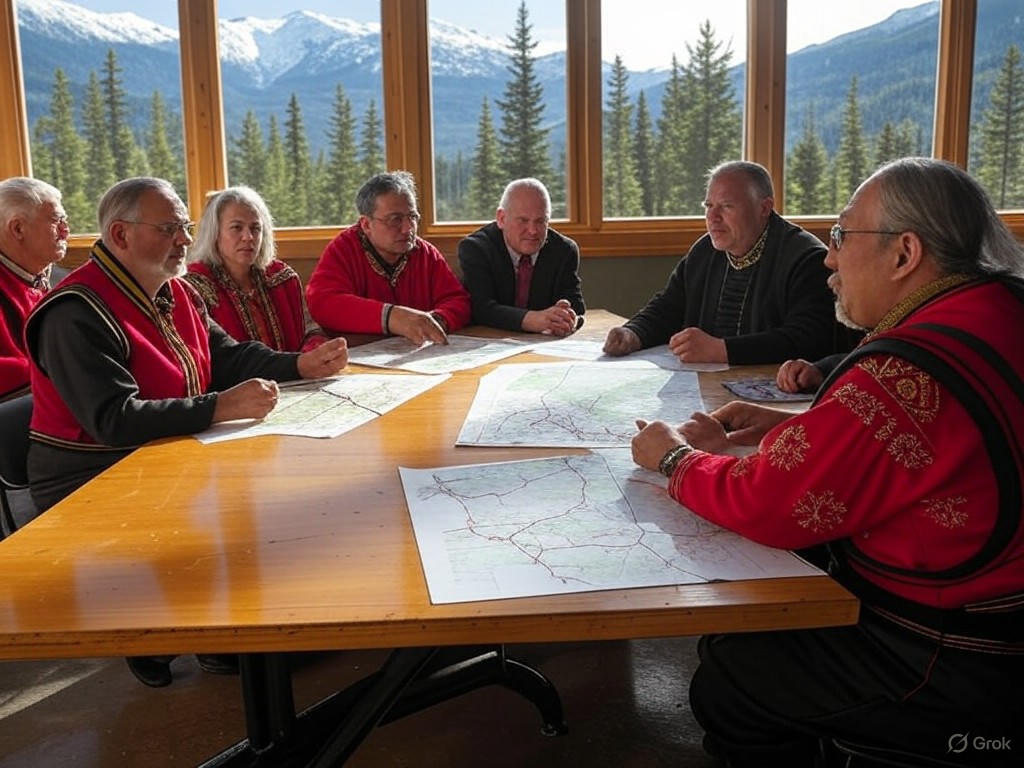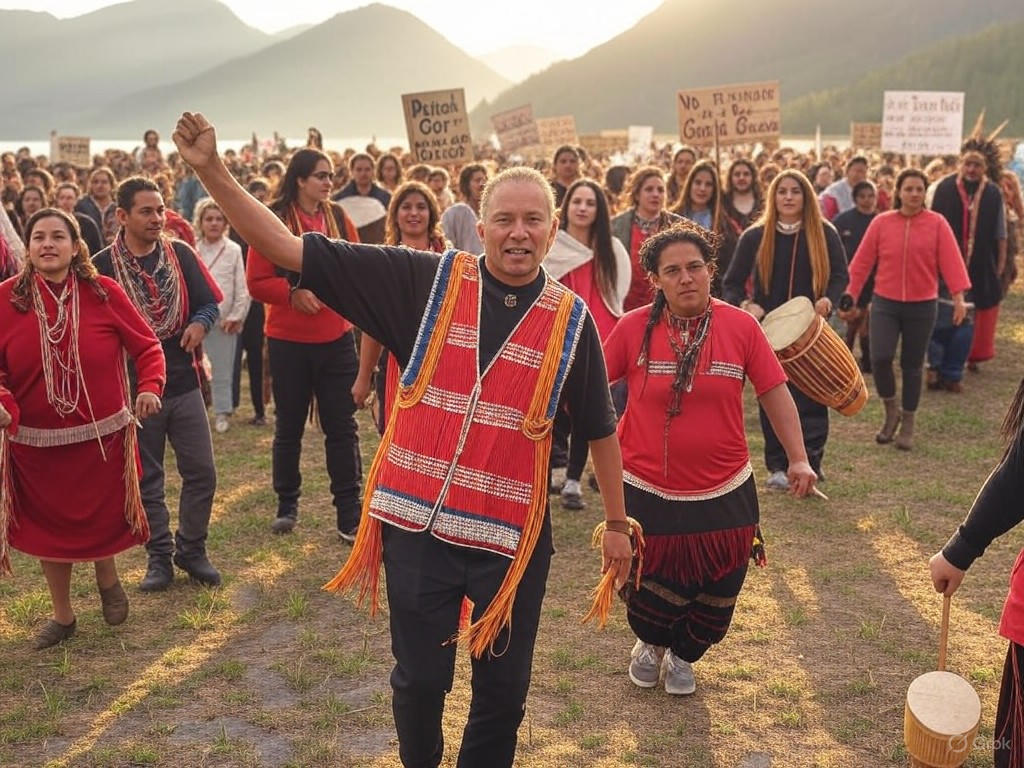Indigenous Opposition to BC’s Pipeline Rush: A Global Rights Issue
In the rugged landscapes of British Columbia, where mountains meet the sea and old traditions clash with modern demands, the debate over pipelines cuts straight to the heart of what makes a nation work. Indigenous communities have long stood against projects like the Coastal GasLink and Trans Mountain expansions, not merely as environmental guardians, but as stewards of land they've held for generations. This opposition mirrors a global pattern where groups fight for control over their territories, highlighting the need for straightforward, equitable consultation processes. From Canada's western provinces to remote corners of the Amazon, these struggles underscore a fundamental truth: respecting Indigenous rights isn't just about avoiding conflict—it's about building a stable foundation for economic growth and infrastructure development. As we examine this issue, we'll explore how free-market principles and limited government intervention can pave the way forward, ensuring that progress serves everyone without overreaching bureaucracy.

Indigenous leaders discuss pipeline impacts in a community gathering, emphasizing the need for direct dialogue in resource development.
The Roots of Opposition in British Columbia
The pushback against BC's pipelines stems from deep-seated concerns over land rights and the potential environmental fallout from large-scale infrastructure. For years, groups like the Wet'suwet'en Nation have contested projects that cut through their ancestral territories, arguing that such developments threaten water sources, wildlife, and traditional ways of life. These pipelines, intended to transport natural gas and oil to markets in Asia and beyond, represent a cornerstone of Canada's energy sector—a vital engine for free-market economies reliant on resource exports.
Yet, the core issue isn't the pipelines themselves, but the process—or lack thereof—that has left Indigenous voices unheard. Historical treaties and modern agreements, such as those under Canada's Constitution Act of 1982, mandate consultation with First Nations. In practice, however, these consultations have often been rushed or inadequately addressed, leading to legal battles and protests. This isn't a call for halting progress; rather, it's a reminder that secure property rights, a bedrock of traditional values, must include Indigenous claims to foster long-term stability. As the Wall Street Journal reported, delays in projects like Trans Mountain have cost billions, underscoring how unresolved disputes can stifle economic potential.
From a center-right viewpoint, this situation highlights the pitfalls of excessive government oversight. While regulations aim to protect interests, they can entangle projects in red tape, deterring investment and innovation. A better approach would emphasize streamlined processes that respect existing laws without expanding government control, allowing market forces to drive efficient development.
Global Echoes: Land Rights as a Worldwide Challenge
The struggles in BC don't stand alone; they echo similar battles across the globe, where Indigenous groups fight to maintain sovereignty over their lands amid pressures from infrastructure and resource extraction. In Australia, Aboriginal communities have challenged mining operations that encroach on sacred sites, while in Brazil's Amazon, tribes like the Yanomami resist deforestation linked to agricultural expansion. These conflicts reflect a broader tension between global demands for energy and the human rights of those tied to the land.
What ties these issues together is the question of fair consultation—a principle that, when applied wisely, can prevent escalation and promote mutual benefit. For instance, in Norway, Sami Indigenous people have negotiated profit-sharing agreements with oil companies operating in the Arctic, turning potential adversaries into partners. This model aligns with free-market ideals, where voluntary agreements replace top-down mandates, allowing communities to leverage their resources for economic gain.
Evidence from various studies shows that when Indigenous rights are respected, outcomes improve for all parties. A report from the Fraser Institute, a respected think tank, argues that empowering local governance through property rights reforms can spur entrepreneurship and reduce dependency on government aid. Similarly, the United Nations' framework on Indigenous issues, as outlined in their Declaration on the Rights of Indigenous Peoples, emphasizes consultation as a means to achieve sustainable development, not as an end in itself.
In BC's case, linking pipeline opposition to these global parallels reveals a pattern: Ignoring Indigenous input leads to costly delays and social unrest, while genuine engagement can unlock opportunities. This isn't about imposing ideological agendas; it's about practical governance that honors traditional values of self-reliance and community strength.

A detailed map illustrating proposed pipeline paths, highlighting overlaps with Indigenous lands and potential environmental impacts.
Balancing Infrastructure, Environment, and Human Rights
At the intersection of infrastructure needs and environmental concerns lies the real challenge: How do we build the networks that power economies without undermining the very foundations that sustain human life? Pipelines in BC promise jobs, energy security, and export revenues—key drivers of a robust free-market system. Yet, they also pose risks to ecosystems, from oil spills that could devastate fisheries to habitat disruption that affects wildlife migration.
Human rights enter this equation as a non-negotiable element. Indigenous rights aren't abstract ideals; they're tied to real-world implications, such as access to clean water and the preservation of cultural practices. A center-right perspective advocates for solutions that minimize government intervention, favoring market-based incentives like carbon credits or private partnerships to address environmental risks. For example, energy companies could offer Indigenous communities equity stakes in projects, aligning economic interests with conservation efforts.
Data supports this balanced approach. According to a analysis by the Canadian Association of Petroleum Producers, collaborations with Indigenous groups have led to billions in contracts and thousands of jobs, demonstrating how free enterprise can deliver tangible benefits. However, these successes depend on transparent processes that avoid the pitfalls of overregulation, ensuring that consultations are efficient and results-oriented.
Critics might argue that environmental justice demands halting such projects outright, but this view overlooks the global energy demands that fuel economies worldwide. Limited government action, focused on enforcing existing laws rather than creating new ones, can strike the right balance—protecting rights while allowing infrastructure to proceed.
A Call for Practical Consultation and Forward Momentum
In concluding this examination, it's clear that the Indigenous opposition to BC's pipelines is more than a local skirmish; it's a microcosm of global struggles for land rights, environmental stewardship, and human dignity. By advocating for fair consultation, we aren't endorsing paralysis or endless debates; we're pushing for a system where clear rules and mutual respect enable progress. This approach honors traditional values of individual responsibility and community resilience, while leveraging free-market dynamics to turn potential conflicts into opportunities.
Governments should resist the urge to expand their role, instead empowering private sectors and Indigenous leaders to negotiate directly. Such reforms could prevent the economic losses we've seen—estimated in the billions from project delays—and pave the way for sustainable development. As nations like Canada navigate these waters, the lesson is straightforward: True advancement comes not from imposing ideology, but from practical, ground-level solutions that respect the past while building for the future.

Participants at an international rally demonstrate solidarity for Indigenous land rights, drawing attention to worldwide issues like those in British Columbia.

